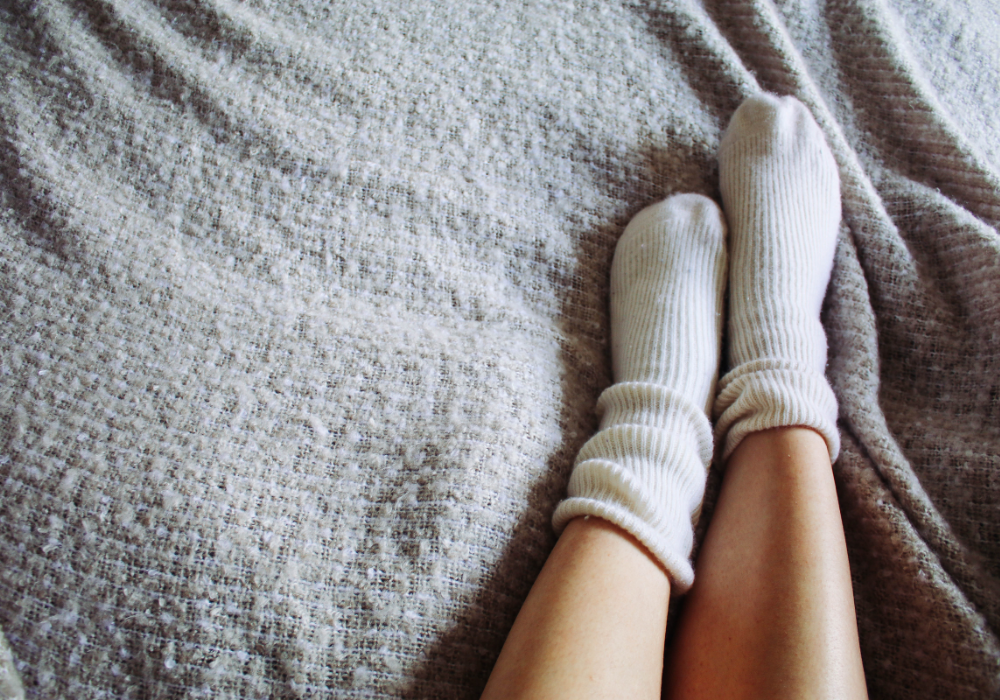Your cozy nighttime rituals might be slowly sabotaging your health.

We all know that inadequate sleep makes us cranky and tired the next day. But the real impact goes way deeper than just feeling groggy. Poor sleep habits can mess with everything from your waistline to your memory, even if you think you’re getting your full eight hours. Scientists are discovering that certain behaviors we never thought twice about can actually cause serious health problems down the road.
What’s particularly alarming is how many of us believe we’re doing everything right—setting aside enough time for rest, creating what seems like a cozy environment, and even using sleep aids when needed. Yet these well-intentioned habits might be the very things undermining our health.
Recent research has revealed surprising connections between common sleep routines and conditions ranging from premature aging to increased risk of serious diseases. The quality of your sleep matters just as much as the quantity, and seemingly innocent bedtime choices could be silently damaging your body. Here’s what might be happening while your eyes are closed.
1. Sleeping in on weekends feels great, but it’s secretly messing with your body.

Love sleeping in on weekends? That Saturday noon wake-up after a week of 6 AM alarms is actually giving your body a type of jet lag. It’s like flying across several time zones twice a week! This throws off your internal rhythm that controls basically everything important.
According to Sandee LaMotte for CNN Health, this “social jet lag” is bad news for your heart. Your body craves routine, not catch-up rest. Those wild swings between early weekday and late weekend wake-ups mess with your hunger hormones too, which explains why people with irregular schedules often struggle with their weight even when they get plenty of shut-eye overall.
2. Lack of deep sleep is sabotaging your memory and brain function.

You might be in bed for eight hours, but if you’re not getting enough deep sleep, your brain isn’t properly storing memories. This stage isn’t just rest—it’s when your brain moves the day’s experiences into long-term storage.
Missing quality deep sleep is why you sometimes can’t remember where you put your keys after a restless night. More worrying, is that ongoing deficits have been linked to memory problems later in life. Research done by The National Institutes of Health suggests that your brain uses sleep to clean out toxic proteins that build up during the day—the same proteins linked to Alzheimer’s disease.
3. Inconsistent bedtimes throw hormones into chaos.

Going to bed whenever you feel like it doesn’t just make mornings harder—it creates a hormonal roller coaster in your body. Your system starts preparing for rest at the same time each night by releasing sleep hormones. Researchers from the Sleep Center of Middle Tennessee explain that a lack of proper rest can increase the risk of hormone imbalances, which may lead to other related health issues. When your schedule is all over the place, these carefully timed processes get completely confused.
This disruption affects more than just sleep. Women with erratic patterns often have worse PMS symptoms and menstrual issues. For men, testosterone (which your body makes mainly while you’re asleep) takes a hit. This might explain why your energy, mood, and even sex drive suffer when your bedtime is chaotic.
4. Nighttime teeth grinding slowly destroys dental health.

That sore jaw in the morning might be a sign you’re grinding your teeth while asleep. This habit puts massive pressure on your teeth night after night, slowly wearing them down and creating tiny cracks you can’t see.
About 1 in 12 adults grind their teeth during the night, and most have no idea until their dentist spots the damage. Beyond wrecking your teeth, grinding often causes headaches and jaw pain. It happens during brief moments when your rest gets disrupted—you don’t fully wake up, but your body enters a mini stress mode that continues for hours.
5. A warmer bedroom could be sabotaging sleep quality.

Think a warm, cozy bedroom helps you drift off? Science says the opposite is true. Your room should actually be pretty cool—between 60-67°F. When it’s warmer than that, it interferes with your body’s natural cool-down process that triggers deeper states of rest.
A too-warm environment can cut your restorative phases by a third and make you wake up more often throughout the night. Your body needs to lower its temperature to reach those beneficial stages. Excess warmth also disrupts your dream cycles—the part where your brain processes emotions and solves problems.
6. Don’t let your beauty sleep cause pre-mature aging.

Side and stomach sleepers, brace yourselves—your favorite sleep position is aging your skin. Pressing your face into a pillow every night creates “sleep lines” that, over time, become permanent wrinkles.
Side sleepers often develop more lines on the cheek they favor, while stomach sleepers have it even worse since their whole face gets smushed. But it’s not just about looking older. These positions can also mess with your skin’s overnight repair process by restricting blood flow, right when your skin cells are working to regenerate. So, if you want to wake up looking fresher, your sleep position might need a change.
7. Evening screen time delays the body’s natural healing processes.

Late-night scrolling isn’t just messing with your sleep—it’s delaying your body’s overnight repair work. The blue light from screens blocks melatonin, the sleep hormone that kicks off your nighttime recovery process, throwing everything off schedule.
Research shows that blue light can push back these essential repair processes by over two hours. It’s like making the night shift start late but expecting them to finish on time. Your body ends up rushing through critical maintenance for your skin, muscles, and immune system. Night after night, that backlog builds up, leaving you feeling—and looking—more worn out than you should.
8. Your sleep position might be giving your acid reflux and digestion a nightmare.

Sleeping on your back or right side can make heartburn way worse. During the day, swallowing helps keep stomach acid where it belongs, but at night, that natural defense shuts down, leaving acid to linger in your esophagus for hours.
Nighttime reflux isn’t just uncomfortable—it’s more damaging than daytime heartburn because the acid sits there longer, increasing the risk of serious issues over time. Your sleep position also affects digestion, slowing down how food moves through your system. That’s why you might wake up feeling bloated and uncomfortable, even if you felt fine before bed.
9. Snoring could be a red flag for dangerous drops in oxygen while you sleep.

The snoring your partner complains about might be more than just an annoyance. Loud snoring can be a red flag for sleep apnea, a condition where you stop breathing for short bursts throughout the night. Each pause lowers oxygen levels and sets off a stress response in your body.
These oxygen drops aren’t just annoying—they’re dangerous. Sleep apnea increases inflammation, damages blood vessels, and nearly doubles the risk of stroke and heart disease. It’s also linked to diabetes and memory problems. Even mild cases can leave you waking up groggy, unfocused, and stuck in a brain fog no amount of coffee can fix.
10. Sleeping pills trap you in a vicious cycle.

Popping a pill to fall asleep might be doing more harm than good. Most sleep medications don’t promote natural rest—they disrupt normal sleep cycles and reduce the deep, restorative stages your body needs.
Relying on sleep aids can lead to bigger issues over time. Many create a cycle where you need higher doses for the same effect, and quitting often brings “rebound insomnia” that’s worse than what you started with. Even more alarming, long-term use of certain medications has been linked to a higher risk of dementia. What seems like an easy fix could come with serious consequences.
11. Chugging water before bed could be ruining your deep sleep cycles.

Staying hydrated is important, but that big glass of water right before bed is probably causing middle-of-the-night bathroom trips that disrupt your rest. Each time you get up, your sleep cycle starts over, and you rarely return to the deep stage you were in before.
Those bathroom trips do more damage than you’d think. Each interruption can reduce your deep sleep by up to 20%. They also cause spikes in your blood pressure and heart rate as you transition from sleeping to walking. This explains why you feel extra foggy after nights with multiple interruptions, even if you got your full eight hours.
12. That blaring siren is stressing you out before you are even awake.

Waking up to your alarm blasting isn’t just annoying—it’s a shock to your system. That jarring sound floods your body with stress hormones, yanking your heart from rest mode to high alert in seconds instead of the slow, natural wake-up it prefers.
This sudden jolt can spike blood pressure by 15 points, and it’s no coincidence that heart attacks are most common in the early morning, right when alarms go off. Mondays are even worse, with a 13% jump in heart problems compared to other days—likely from the stress of switching from weekend sleep-ins to harsh weekday wake-ups.